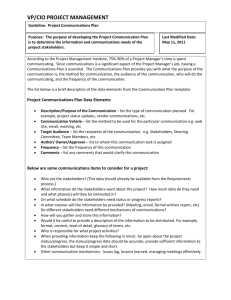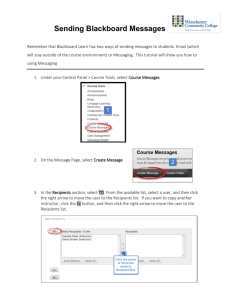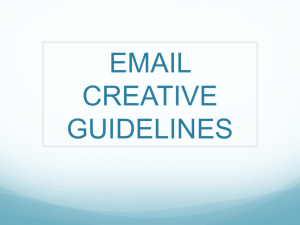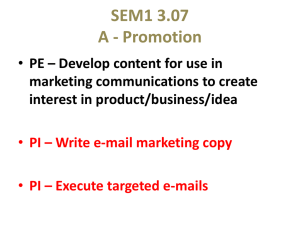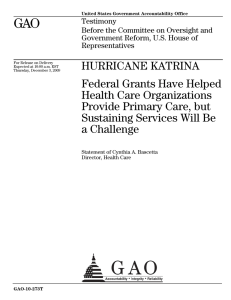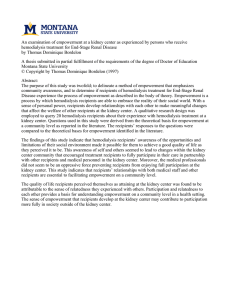Template 10 - Continuous Improvement Plan
advertisement
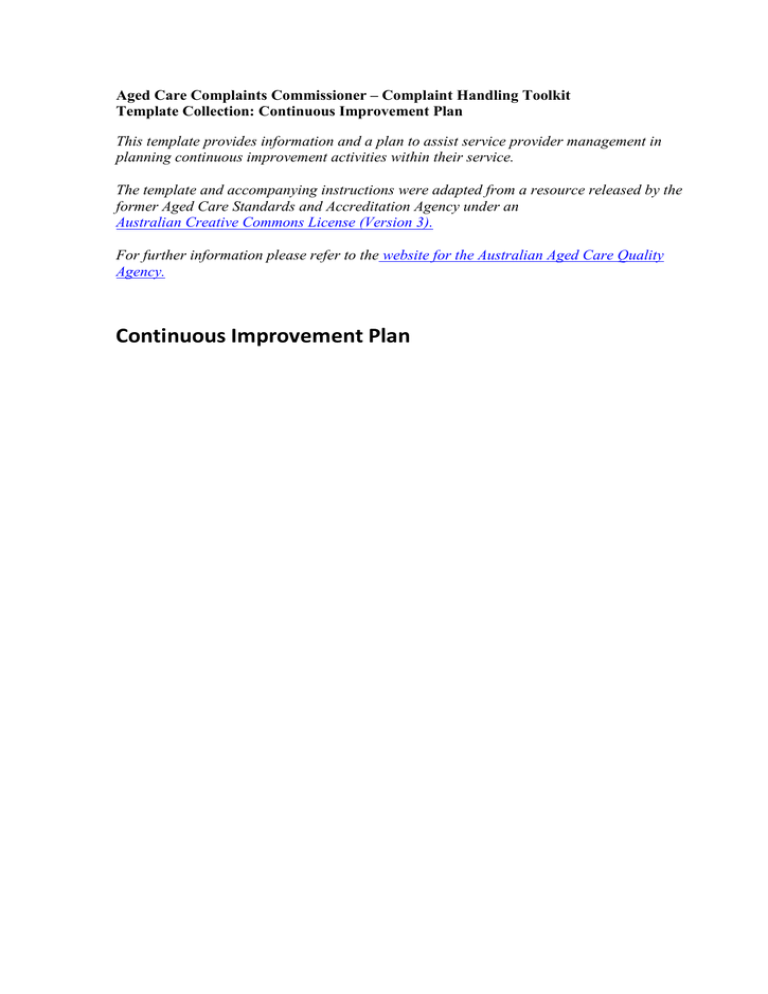
Aged Care Complaints Commissioner – Complaint Handling Toolkit Template Collection: Continuous Improvement Plan This template provides information and a plan to assist service provider management in planning continuous improvement activities within their service. The template and accompanying instructions were adapted from a resource released by the former Aged Care Standards and Accreditation Agency under an Australian Creative Commons License (Version 3). For further information please refer to the website for the Australian Aged Care Quality Agency. Continuous Improvement Plan Continuous Improvement Plan What is continuous improvement? Continuous improvement is an ongoing effort to improve the quality of services and care delivered by a service. Continuous improvement: takes into account the needs of care recipients, and may involve them in improvement activities looks at improvements in a systematic way to improve quality over time ranges in scale from smaller programs to significant strategic initiatives. What is the relationship between continuous improvement and quality assurance? Quality assurance is about systems and processes that deliver a consistent quality of care and services. Continuous improvement moves beyond quality assurance to find ways of lifting the quality of services delivered. What are the principles of continuous improvement? Whatever approach is used, the following framework helps to drive and support the process: care recipient-focused strategic planning and implementation involvement of key stakeholders innovation regular monitoring and evaluation. A culture of continuous improvement ensures a service is responsive to change and can continually develop a quality service that is of value to its care recipients. A sound continuous improvement program can demonstrate: baseline – the current situation the service is trying to change planned improvements and the expected benefit to care recipient monitoring – systems to monitor a new process or activity during its implementation evaluation – systems to monitor a process or activity once it has been implemented, which should help ensure its sustainability and capture the actual improvements. Continuous improvement processes help services resolve problems and deliver high quality care and services to care recipients. How can services implement improvements in a structured manner? Plan the improvement Continuous improvement means taking a systematic and planned approach to improving the quality of care and services including: analysing complaints trends and themes researching possible solutions at the service level planning and prioritising improvement activities listening to suggestions from care recipients, representatives and staff, and monitoring and evaluating new solutions, processes and improvements. Improvements that are made in response to problems (for example, malfunctions being corrected, broken furniture being repaired) are not planned continuous improvement. Implement the improvement Services should monitor new processes and activities to make sure the change is not causing problems. This will allow services to make modifications to an activity or process as required and ensure positive results for care recipients. Care recipients and staff should be involved in the implementation, including through keeping them informed as appropriate. Staff should be supported through education and training, and updated information in policies and procedures. Evaluate success of the improvement activity Evaluating the effectiveness of a new activity or process is an important step. Ensure all components of the activity have been closed-off, for instance, updating of any policies and procedures, and seeking care recipient and staff input. Having a structured approach to the evaluation of continuous improvement can also provide guidance for future improvement activities. Decide next steps There are at least two possible situations in this step: 1. If the improvement activity has been successful you can close the loop, or 2. The improvement activity has been unsuccessful or partially successful and staff need to make amendments and start a new cycle of planning, implementing, evaluating and deciding. Why should services keep track of their improvement activities? Keeping track of improvement activities ensures a strategic approach to continuous improvement, including prioritisation of activities. It also allows services to reflect back on what worked well, and what didn’t. A plan for continuous improvement can be in the service’s own format but should include clear information on: issues identified the expected outcome/s to which it relates the planned action/s, and planned completion date. An example may therefore be: Date Issues identified 11.1.12 Article about pain management indicated service’s pain assessment tool may not identify pain for care recipients with dementia Related Policies / Procedures Planned action Planned completion date Pain management Review form. Source new form. Trial and evaluate new form. Update policies and procedures. Train all staff. Implement new form for all new care recipients. Implement new form for all other care recipients. 27 March 2012 (completed) A blank template for use by services follows. 4 May 2012 (completed) Ongoing PLAN FOR CONTINUOUS IMPROVEMENT When deciding on an action, you should consider how the action will improve the care and services provided to care recipients and the sustainability of the action. [Service Name] Date Issues identified (include source for example complaint, internal audit) Date plan prepared: _________________ Related Policies / Procedures Planned action Planned completion date Actual completion date

